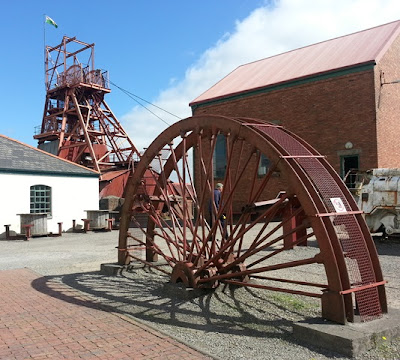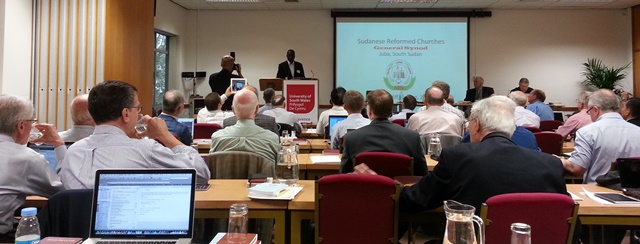By "a clean mouth" I don't mean the kind the dentist wants to see, although this is recommended! No, I'm referring to the words we use in conversation. The principle also extends to all the written forms of communication we use. Bad language, "swearing" or "blaspheming" has always been with us, but never has it been communicated as much, because of our technologically advanced age, and as unashamedly as in our society. In everyday conversation, books, films, songs, and videos, the regular use of blasphemous, coarse, vulgar language, is commonplace, leaving many children with the idea that such words are normal and acceptable. I suspect that "go and wash your mouth out" is much less used now than a generation ago and would be regarded only as an order to brush one's teeth! This is not surprising in a society that has moved so much from the precepts of the Bible as a foundation for moral conduct and for the "norms" of conversation.
However, my concern lately is with the number of Christians who seem to have little problem with "liking" pages or comments on Facebook that have words or images which contain coarse, vulgar language, like the "f" word. The bad language used by unbelievers is one thing; we should not be surprised at that. But condoning or commending it, even not being offended by it, on the part of those who confess Christ as their Lord is another thing altogether. The Lordship of Christ extends to the words we use and how we use them. We have to speak to all, always, as if we were speaking directly to him.
"He who loves purity of heart, and whose speech is gracious, will have the king as his friend (Proverbs 22:11)."
In the third commandment we are told
"you shall not take the name of the Lord your God in vain", which we mostly associate with careless or irreverent use of God's name. We tend, rightly, to call this "blasphemy", a term we will look at below. Taking God's name "in vain" includes every unjustified use of God's name in a frivolous, insincere, empty or disrespectful way - treating God lightly in other words. We break this commandment when we use the name of God yet do not take him or the ideals of his kingdom seriously. How many times do we hear people who have no personal faith in God say "O my God"? Or, think of the stand-up comedian whose routine includes jokes about God, uses the coarsest language, then waves to the audience at the end and says " Bye, God bless" - and, yes, Christians sometimes laugh along with him, or her, in the privacy of their homes! Or, again, think of the vicar in England, Rev Alice Goodman, who has a sticker on her car with the letters wtfwjd? which stands for "what the f*** would Jesus do?" She states that the middle word is not blasphemous but is a vulgarity, as if that itself were alright! Of course this is blasphemy, bringing the name Jesus into a disreputable connection with an acknowledged vulgarity, and so is a transgression of the third commandment. Even if her motive was good the method is decidedly bad!
So blasphemy is disrespectful speech against God, in particular when one or more of the names of God, including Jesus and the Holy Spirit, is included. However, the matter of our quality of speech is much wider than the way we use God's name or names. In the New Testament the same Greek words as are translated "blaspheme" and "blasphemy" are also used in a wider application. For example the Greek verb
blasphemeo is used in Romans 3:8. The ESV translates this "slanderously charge us", the NIV has "slanderously claim that we say" and the AV "slanderously reported". In each case the Greek verb
blasphemeo is given the meaning "to slander".
In other words
blasphemeo is to speak disrespectfully, profanely, slanderously, or in similar vein, against God, or human beings, or even the possessions of Christians (2 Peter 2:2) and angels (2 Peter 2:10), whether or not the names of God are directly used. Compare Titus 3:2 where
blasphemeo is translated "speak evil of" (ESV and AV) and "slander" (NIV). It's interesting to compare the Oxford Dictionary of English definition of "blasphemy", which is
"the action or offence of speaking sacrilegiously about God or sacred things; profane talk", and gives the origin of the word as
"from Greek blasphemia -slander, blasphemy." So in translation we should probably confine "blaspheme" and "blasphemy" to the context of speech directly against God, while the other meanings of the word tell us that quality of speech does not end at how we speak about, and to, God.
Along with this we should note the many descriptions of speech mentioned in the Bible. This includes "perverted" speech (Proverbs 2:12), as well as speech that is "smooth" (Psalm 55:21), "prudent" (1 Samuel 16:18), "crooked" (Proverbs 4:24), "seductive" (Proverbs 7:21), "truthful" (2 Corinthians 6:7), "sound" (Titus 2:8) and "gracious" (Proverbs 22:11 and Colossians 4:6). As well as being harmful words can be, and ought to be, beneficial to others. Our speech and our written words are vehicles which convey what is in our mind, thoughts, emotions and attitude - channels for good or bad. Through our words we give vent to anger, flattery, pride, falsehood, jealousy, praise, joy, excitement, compassion, and many other personal traits, all of which reveal aspects of our character. This is one reason why the Bible has so much to say about our words and how we use them. The Letter of James devotes the whole of chapter three to this! Our speech can have have devastating effects for good or bad. A guide in Norway was once asked by one of a climbing party if avalanches were common in that area. The guide pointed to a heavy overhang of snow in the distance and said, "See the big overhang of snow on that mountainside. One word can bring all that down!" Sadly it's like that in life, including life in the Church. Our words all too often bring an avalanche of trouble rather than a volume of good.
Paul's statement in Colossians 4:6 bears closer inspection -
" Let your speech always be with grace, seasoned with salt, so that you may know how you ought to answer each person." The words "seasoned with salt" are explanatory of "with grace." As a right amount of salt adds savour to food, without which it would be bland, so our speech should carry a good savour to those we speak with. "Salty" speech does not mean speech that is abrasive, stingy, or alienating, even when we need to be challenging or admonitory, but rather speech that is positively beneficial and helpful to those we speak with. The avoidance of coarseness and vulgarity is only one side of our quality of speech (or writing) as Christians, although it is a very important and necessary side in today's world. The other side is the wholesomeness of our language. It must communicate the savour of godliness. Quality of speech is more than the absence of harm in our words: it's also persuasive of good.
The verse ends,
"so that you may know how you ought to answer each person." This has an apologetic or evangelistic ring to it. Our way of speaking is a vital element in our efforts to speak for Christ and to guide people to him. Our Christian conversation will often not be well received but we must be careful never to reduce it to a sanctimonious criticism or a boring commendation of truth. Salty speech will often be challenging but never unloving, gracious but never compromising.
"With grace" means that not only must our words be gracious but also that the effectiveness of our words does not depend on our skill with words but upon the grace of God. We can rely on God's grace to guide our speaking, even to give us the right words. The Lord on our lips is also the Lord of our lips.
"The heart of the wise makes his speech judicious and adds persuasiveness to his lips (Proverbs 16:23)".




 Following this we proceeded to Caerphilly castle, the largest castle in Wales. It was begun in 1268 by Gilbert de Clare, known as "Gilbert the Red", possibly due to his red hair. The castle proved a very handy refuge for Edward II in 1326 as he fled from his wife Isabella and her companion, Roger Mortimer! It is surrounded by a series of moats and small islands and has a drawbridge. The south-east tower of the castle leans at a greater angle than the famous Tower of Pisa! It's difficult to do justice to this in a photo but it is really scary to look at!
Following this we proceeded to Caerphilly castle, the largest castle in Wales. It was begun in 1268 by Gilbert de Clare, known as "Gilbert the Red", possibly due to his red hair. The castle proved a very handy refuge for Edward II in 1326 as he fled from his wife Isabella and her companion, Roger Mortimer! It is surrounded by a series of moats and small islands and has a drawbridge. The south-east tower of the castle leans at a greater angle than the famous Tower of Pisa! It's difficult to do justice to this in a photo but it is really scary to look at!



.jpg)



.jpg)
.jpg)

